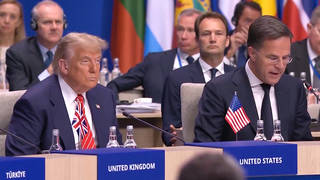June 25, 2025 | Kari Lake urges Congress to eliminate Voice of America, gut oversight agency
Kari Lake, senior adviser to the U.S. Agency for Global Media, testified before the House Committee on Foreign Affairs on June 25, 2025, and urged Congress to gut Voice of America and the other federally-funded news organizations that she oversees.
During the hearing, which was titled “Spies, Lies, and Mismanagement: Examining the U.S. Agency for Global Media’s Downfall,” Lake said in her opening statement that USAGM was unsalvageable, later referring to it as “a rotten piece of fish.”
“Within days in my role as senior adviser, it became increasingly clear that reform was nearly impossible,” Lake said. “The agency was incompetent and mismanaged and deeply corrupt, politically biased and, frankly, a serious threat to our national security.”
Lake went on to defend proposed cuts to the agency and the global news organizations it funds, including Voice of America, Radio Free Europe/Radio Liberty, Radio Free Asia and Radio y Televisión Martí. She also called on members of Congress to amend the laws mandating VOA’s existence.
“What is going out on VOA airwaves — it’s outrageous, and it has to stop,” she said, adding that much of the reporting being published by VOA and other USAGM-funded outlets is “biased” and “corrupt.”
Lake’s statements mirrored those made by President Donald Trump since at least 2023. In a late-night executive order on March 14, 2025, Trump eliminated all USAGM functions not required by law. The following day, the White House posted a news release that railed against “the Voice of Radical America” and the director of VOA confirmed that nearly the entire staff of the news organization had been suspended.
A federal judge ordered the administration to halt efforts to fire or furlough employees at the news agency at the end of March, and another judge reversed VOA’s closure April 22, calling it “arbitrary and capricious.”
Lake appealed the ruling two days later, blocking operations at the outlet from restarting and, days before the June Congressional hearing, issued hundreds of termination notices to VOA and USAGM staff.
The layoffs were rescinded June 27 after errors were discovered that could have derailed efforts to dismantle the organization, according to The New York Times.
No news has been published on VOA’s website since March.





